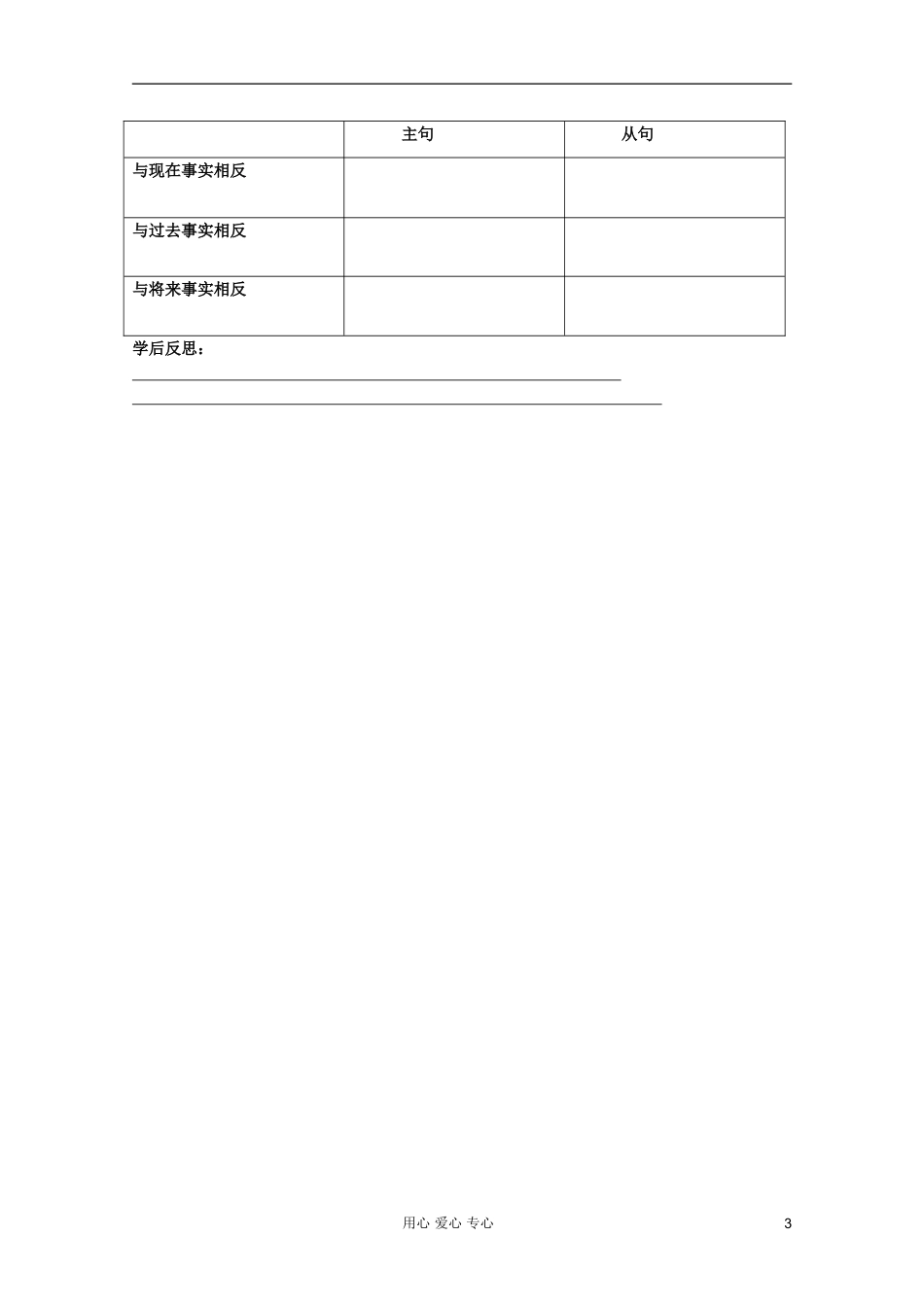Unit 4 Cyberspace 导学案 7Grammar寄语:There is no end to learning. 学无止境。 Learning aims: grasp the first conditional and the second conditional Learning important point: understand the difference between the first conditional and the second conditional Learning difficult point : learn to use the second conditional Learning steps :Step 1. 翻译下面的句子,然后思考总结:(1) If our teacher agrees , we’ll talk about the topic . (2) 如果明天天气好, 你要做什么? (3) If people don’t stop polluting the air , animals and plants will soon die . (4) 如果你太累,你可以休息一下。 (5)If you have time , we can go for a walk this evening . (6) If you feel sleepy , go to bed . (7) 如果她来,请给我打电话。 以上的句子是 if 引导的真实条件句(8)If I were you , I would help the poor . (9) If I could fly , I could live on the moon . (10) If he had get up earlier , I would have caught the early bus . 这些句子表示将来不可能发生或与事实相反的情况或状态,我们把这种 if 引导的条件句叫虚拟条件句。Step 2. 虚拟条件句的构成:(1)与现在事实相反条件句: 一般过去时 (be 一般用 were )主句: would ( should , could , might ) + 动词原形If I knew his address, I could write a letter to him . (2) 与过去事实相反条件句: 过去完成时 (构成: + )主句: would ( should , could , might ) +have + 动词的过去分词If you had worked harder , you would have gotten high grades in this exam . (3) 与将来事实相反用心 爱心 专心1 动词过去式 would (should条件句: should +动词原形 主句: might , could ) were to + 动词原形 + 动词原形If it rained this afternoon , the football match would be put off . 注意:(1)在虚拟语气的从句中,动词'be'的过去时态一律用"were",不用 was, 即在从句中 be 用 were 代替。If I were you, I would go to look for him. 如果我是你,...


